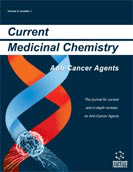Abstract
Cisplatin is one of the most potent and widely used anti-cancer agents in the treatment of various solid tumors. However, the development of resistance to cisplatin is a major obstacle in clinical treatment. Several mechanisms are thought to be involved in cisplatin resistance, including decreased intracellular drug accumulation, increased levels of cellular thiols, increased nucleotide excision-repair activity and decreased mismatch-repair activity. In general, the molecules responsible for each mechanism are upregulated in cisplatin-resistant cells; this indicates that the transcription factors activated in response to cisplatin might play crucial roles in drug resistance. It is known that the tumor-suppressor proteins p53 and p73, and the oncoprotein c-Myc, which function as transcription factors, influence cellular sensitivity to cisplatin. So far, we have identified several transcription factors involved in cisplatin resistance, including Y-box binding protein-1 (YB-1), CCAAT-binding transcription factor 2 (CTF2), activating transcription factor 4 (ATF4), zinc-finger factor 143 (ZNF143) and mitochondrial transcription factor A (mtTFA). Two of these-YB-1 and ZNF143-lack the high-mobility group (HMG) domain and can bind preferentially to cisplatin-modified DNA in addition to HMG domain proteins or DNA repair proteins, indicating that these transcription factors may also participate in DNA repair. In this review, we summarize the mechanisms of cisplatin resistance and focus on transcription factors involved in the genomic response to cisplatin.
 24
24

















